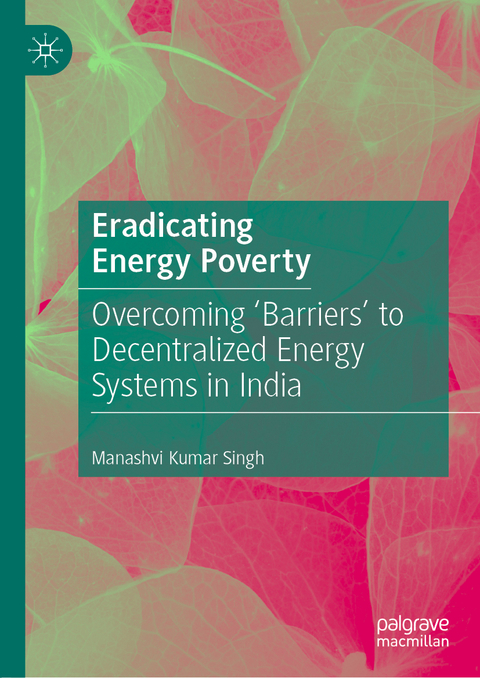
Eradicating Energy Poverty
Palgrave Macmillan (Verlag)
978-981-16-7072-5 (ISBN)
Dr. Manashvi Kumar belongs to the 2004 batch of the Indian Administrative Service (IAS) of Punjab cadre. He has an exceptional bachelor’s and master’s degree in earth sciences and an award-winning doctorate in political science. His academic interest spans across subjects pertaining to land, water, energy and power, climate change, regulatory capture, government failure, comparative public policy, inter-disciplinary research, mixed methods research, evidence-based policy and policy analysis.
Part 1: Introduction to the Work.- Chapter 1: Theoretical Framework: The world view on energy, energy poverty, access to energy, energy ladder hypotheses, and the constraints of rural electrification policies.- Chapter 2: General profile of the electricity sector, genesis of rural electrification, overview of rural electrification programs, institutions and frameworks, policies, appropriateness of rural electrification, statement of purpose, work details.- Part 2: Research Methodology.- Part 3: Case Studies as a critical component of mixed method research.- Part 4: Collectivism of energy access through local energy needs assessment evidence-based policy.- Part 5: Rural energy collectivism through decentralized energy systems.- Part 6: Conclusion: Overcoming Barriers.
| Erscheinungsdatum | 11.02.2022 |
|---|---|
| Zusatzinfo | 123 Illustrations, color; 9 Illustrations, black and white; LVIII, 423 p. 132 illus., 123 illus. in color. |
| Verlagsort | Singapore |
| Sprache | englisch |
| Maße | 148 x 210 mm |
| Themenwelt | Naturwissenschaften ► Biologie ► Ökologie / Naturschutz |
| Recht / Steuern ► Öffentliches Recht | |
| Sozialwissenschaften ► Politik / Verwaltung ► Staat / Verwaltung | |
| Sozialwissenschaften ► Soziologie ► Spezielle Soziologien | |
| Technik ► Elektrotechnik / Energietechnik | |
| Schlagworte | affordable and clean energy • Decentralized Energy Systems • energy poverty • Prosumerism • renewable energy • Renewable Energy Resource Potential • rural electrification • SDG 7 |
| ISBN-10 | 981-16-7072-2 / 9811670722 |
| ISBN-13 | 978-981-16-7072-5 / 9789811670725 |
| Zustand | Neuware |
| Haben Sie eine Frage zum Produkt? |
aus dem Bereich


